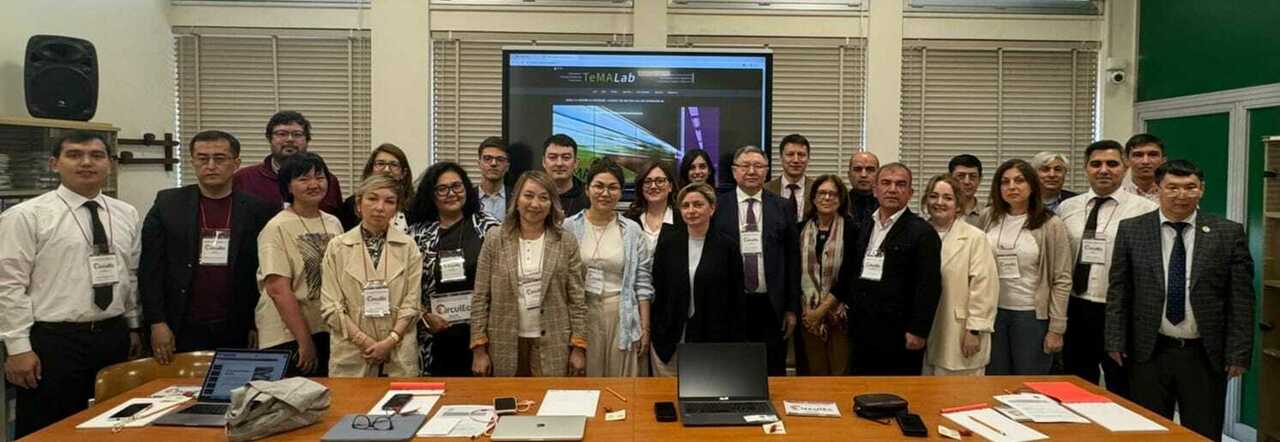Federico II University has warmly welcomed colleagues from ten universities and research institutes from Kazakhstan, Tajikistan, Turkmenistan, and Uzbekistan, as part of the new Erasmus+ CirculEC project. The project, which will conclude in 2026, aims to develop an innovative master's degree focused on the strategic themes of sustainable development and circular economy, with a multidisciplinary approach that combines skills and knowledge from different areas of knowledge.
On Monday, April 29, at the TeMA Lab of the Department of Civil, Building, and Environmental Engineering, the first meeting in Italy with the Asian colleagues was held. The meeting saw the participation of very representative institutional figures, including the Kazakh Rectors of the Alikhan Bokeikhan University and Ualikhanov University, two vice-rectors from the East Kazakhstan Technical University and the Tajik State University of Commerce, and some faculty deans of the involved universities.
«The collaboration with the universities of Central Asia represents an extraordinary opportunity, for our University and our Dicea Department, to transfer not only know-how but also visions and approaches to scientific research,» said Prof. Carmela Gargiulo, scientific director of the project together with engineer Gerardo Carpentieri. «This project will allow us to exchange knowledge and skills in a strategic sector such as sustainable development, and to strengthen ties with a geographical area in strong growth».
The Asian partners have already expressed their willingness to initiate further collaborations with the Federico community, expanding the synergy in research, training, and third mission. The event represents a further step forward in the internationalization process of Federico II University, which confirms itself as a point of reference in the international academic panorama, always keen to promote valuable cultural and scientific exchanges.

